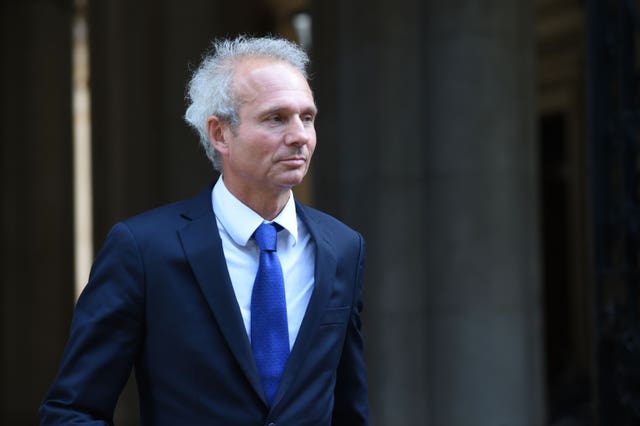Efforts to break the Brexit deadlock between Theresa May’s government and the Scottish and Welsh administrations will continue this week, Downing Street said.
Whitehall, Holyrood and Cardiff Bay are at loggerheads over how to handle the repatriation of powers from Brussels following Brexit.
UK ministers are tabling amendments to their Brexit bill to deal with the issue despite opposition from the Scottish and Welsh Governments.
But Downing Street insisted the UK Government wanted to reach an agreement and Mrs May is set for talks with Scottish and Welsh first ministers Nicola Sturgeon and Carwyn Jones on Wednesday.
“This is a very important piece of legislation for delivering a smooth Brexit and we continue to engage with the devolved administrations to reach agreement on this,” the Prime Minister’s official spokesman said.
“What we are focused on is reaching agreement, that’s where our intention is.”
The UK Government has named 24 devolved policy areas where it wishes to retain power temporarily in the wake of Britain’s exit from the bloc.
These include areas such as agriculture, fisheries, food labelling and public procurement.
The Scottish and Welsh Governments have accused the UK Government of a “power grab” and introduced their own legislation.

Whitehall analysis identified 153 areas where EU laws intersect with devolved competence.
The UK Government insists that the “vast majority” of those EU powers returning from Brussels will be controlled by Edinburgh, Cardiff and Belfast from day one of Brexit, including in areas such as carbon capture, water quality and energy efficiency.
Mr Lidington said: “Our amendments respect and strengthen the devolution settlements across the UK but still allow the UK Government to protect the vitally important UK common market, providing much-needed certainty and no new barriers to doing business.”
Both the Scottish and Welsh Governments have brought forward their own legislation as a “backstop” to ensure the continuity of EU law in devolved areas in the event that agreement is not reached over the UK’s withdrawal bill.
The Scottish Conservatives said they have submitted 147 amendments to what it called the Scottish Government’s “farcical” Continuity Bill.
Responding to the move at Westminster, Scotland’s Brexit Minister Michael Russell said: “This move from the UK Government, in the face of opposition from both the Scottish and Welsh Governments, confirms the biggest power grab attempt on devolution since the establishment of the Scottish Parliament.
“The UK Government is using Brexit to unilaterally rewrite the devolution settlement that the people of Scotland voted for so decisively in 1997.”
Meanwhile, Downing Street said it still expected this month’s European Council meeting to agree to an “implementation period” after the UK formally leaves the EU in March 2019.
The EU wants a transition period to expire at the end of 2020, while Mrs May has said it should last for around two years – taking it to March 2021 – but Downing Street said “there isn’t a very significant gap” between the two positions.
Number 10 also said it wanted the new immigration system to be in place by the time of the UK’s exit following reports crucial legislation had been delayed.
Responding to the Politico report on the Immigration Bill’s progress, the PM’s spokesman said: “We have been clear we will bring forward the Immigration Bill in due course.”
The spokesman added: “We want to have the systems ready and prepared for when we leave the EU.”






